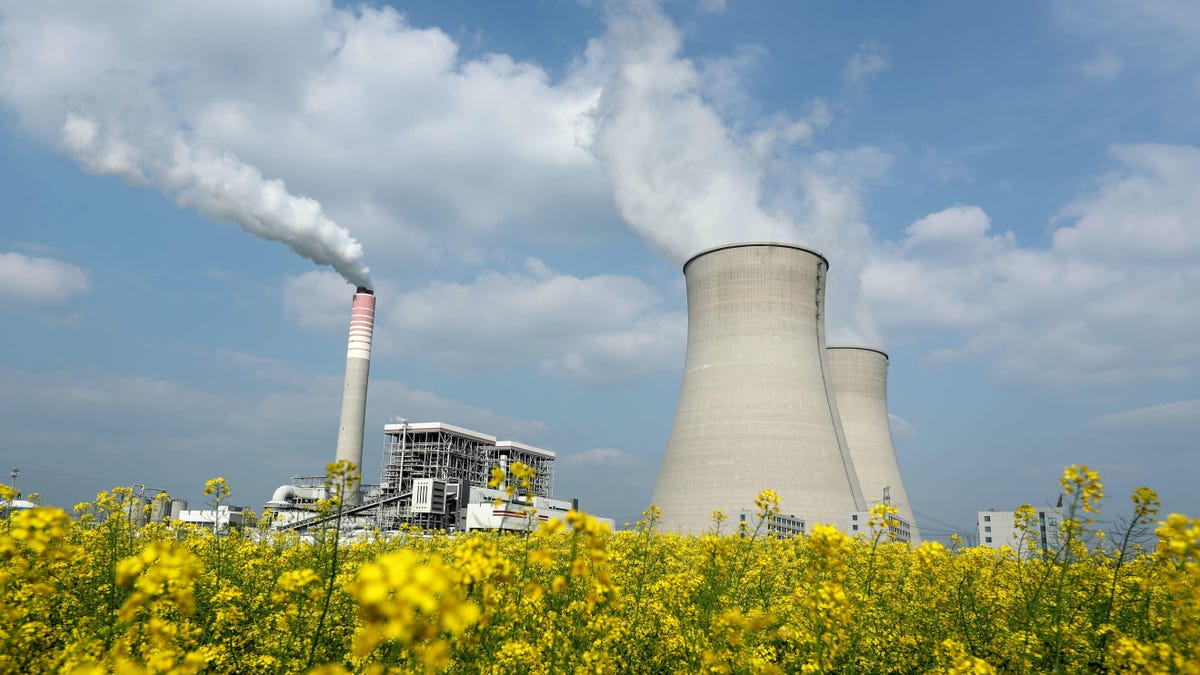COVID-19 lockdowns caused an 'extreme' reduction in carbon emissions
We've been locked down and the planet's been breathing easier, but experts warn emissions could rebound quickly.

The coronavirus lockdowns drastically reduced carbon emissions -- but they could be set to rocket back up.
The coronavirus pandemic has changed the way we move around cities and the planet in drastic ways. We've been stuck inside with troublesome housemates or adoring pets, taking cars off the road, grounding planes and dramatically altering how much energy we're using. So it's no surprise the planet has been able to take a bit of a breather: We've had cleaner air and cleaner water, and the animals are reclaiming our cities.
A new study, published in Nature Climate Change on Tuesday, has put a figure on the impact the pandemic has had on global carbon dioxide emissions. Using government policies and activity data up until the end of April 2020, the estimates suggest daily emissions have dropped by almost a fifth compared to 2019.
"Emissions reached their peak decline on 7 April, with a 17% decline compared to the same time last year," said Pep Canadell, who leads the Global Carbon Project and is a co-author on the paper, in a statement. The reduction is equal to a drop of around 18.7 million tons of carbon dioxide. There is an important caveat: These are estimates based on mean daily emissions data captured between 2017 and 2019.
Combining energy, activity and policy data from 69 countries, including the world's biggest emitters such as China, the US, Europe and India, the team estimated the effect of various confinement measures, ranging from no restrictions to national lockdowns, on various carbon-emitting sectors of the economy.
See also: Air Quality Index: What to do when the air quality is bad in your area
Their analysis also examined Apple mobility data for world countries and traffic data from the US, the UK and the Tomtom traffic index.
And it was in the surface transport data -- those from road vehicles and shipping -- where they found the most significant effects of the lockdowns on carbon emissions (a reduction of 36% by April 7, equal to around 8.3 tons a day). The drastic change in transportation behavior has already led to some cities reallocating car lanes to accommodate bicycles.
The team suggests annual emissions could decrease from 4% to 7.5% compared to last year if some restrictions remain in place until the end of year. That drop is comparable to the amount of emissions reductions required to get closer to the Paris climate targets. However, the researchers note the changes observed are likely to be temporary because "they do not reflect structural changes in the economic, transport or energy systems."
Basically, unless we all commit to staying in our homes for the next decade, we're unlikely to reach the Paris climate targets. And, judging from the cafes I've been to in the last week, we seem to be itching to get back outside and moving around again. In addition, a recent report by the Centre for Research on Energy and Clean Air examined air pollution and satellite data to show China has already rebounded dramatically, with coal consumption and manufacturing rising above 2019 levels.
"The drop in emissions is substantial but illustrates the challenge of reaching our Paris climate commitments," said Rob Jackson, a climate scientist at Stanford University and coauthor of the study. "We need systemic change through green energy and electric cars, not temporary reductions from enforced behavior."

